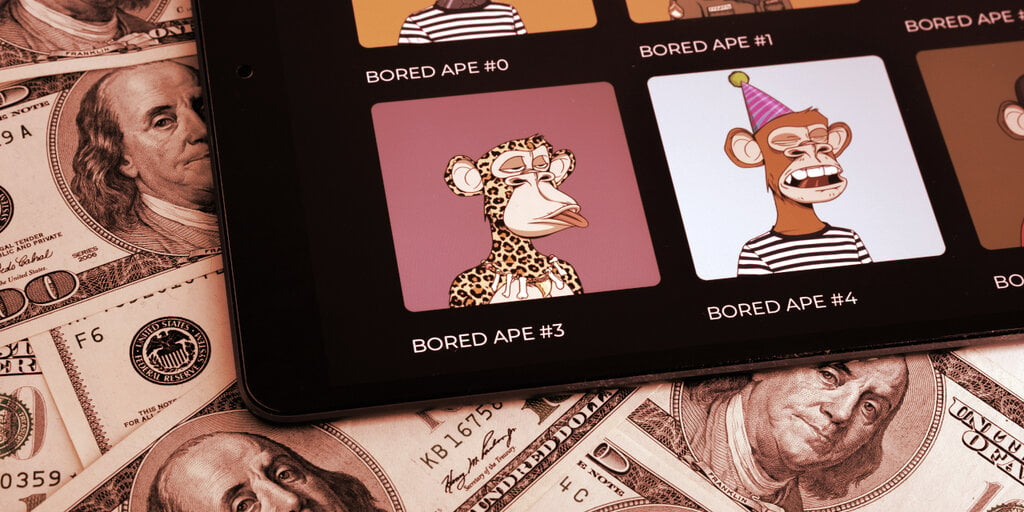Search
Just a couple weeks ago, it appeared that most of the NFT market was on a steep slide towards rejecting creator royalties altogether. Even the top marketplace, OpenSea, considered making them optional. But creator pushback forced OpenSea to maintain royalties, and now a rival Ethereum marketplace is similarly saying it will enforce royalties.
X2Y2, which launched earlier this year and saw significant trading activity over the summer, announced today that it will enforce creator-set royalties on all NFT collections—both existing projects and newly-launched ones, as well.
Previously, X2Y2 offered a Flexible Royalty model that let the creators and collectors alike have input into how strictly the marketplace enforced royalties for each project. However, only certain types of NFT projects—specifically artwork and access passes—could choose to have royalties fully enforced. Profile picture (PFP) projects were not eligible for that option.
6/
We may have a different view on the best way of handling royalties with OpenSea, yet we respect the code.
With OpenSea risking its market share and taking a brave move to defend royalties, they have our respect!
— X2Y2 (@the_x2y2) November 18, 2022
In a Twitter thread today, X2Y2 praised OpenSea for ultimately taking a stand for creator royalties, and admitted that many newly launched projects were using OpenSea’s blocklist code that banned those NFTs from being traded on marketplaces that don’t fully enforce royalties.
“Putting belief aside, if there was anything self-evident in crypto, it's the ‘code.’ Since [OpenSea] released the OperatorFilter two weeks ago, most of the new projects have sided with it,” X2Y2 wrote. It added, "’Code is law,’ and we respect the law.”
X2Y2 wrote that it removed the Flexible Royalty setting for new projects that use the OpenSea blocklist code, but that it will also now enforce royalties set for all existing NFT projects too.
“With OpenSea risking its market share and taking a brave move to defend royalties,” X2Y2 wrote, “they have our respect!”
OpenSea responded on Twitter to say that it had removed X2Y2 from its marketplace blacklist, which means that NFTs from creators that use the OperatorFilter code can now be traded on X2Y2.
Proud to stand with you–and the many brilliant creators in our community–on this critical measure. @the_x2y2 has been removed from our OperatorFilter and we hope other marketplaces will continue to join us. Onwards and upwards 🚀
— OpenSea (@opensea) November 18, 2022
"Proud to stand with you—and the many brilliant creators in our community—on this critical measure," OpenSea wrote. "We hope other marketplaces will continue to join us. Onwards and upwards."
An NFT is a blockchain token that represents ownership in an item. They’re often used for digital goods like artwork, PFPs, collectibles, and video game items, and the NFT market surged to $25 billion in trading volume across 2021. An NFT royalty is a fee taken from a secondary market sale, typically between 5% and 10% of the sale price, and paid to the original creator.
Such royalties cannot be fully enforced on-chain with the current popular NFT standards across top chains like Ethereum and Solana, however top marketplaces previously respected creator royalties as something of a social construct. Many creators and collectors alike consider royalties to be a key part of the Web3 ethos.
However, market momentum began shifting away from royalties this summer as new trading platforms like SudoSwap and Yawww ignored them in an apparent effort to claw away market share from the top marketplaces. On Solana, nearly all trades are now done on platforms that don’t honor or require royalties, following Magic Eden’s shift last month.
Earlier this month, top Ethereum NFT marketplace OpenSea said it was considering a move away from enforced royalties, as well, following moves by marketplaces like X2Y2, Blur, and LooksRare to make them optional.
OpenSea quickly faced criticism and backlash from NFT creators, including Bored Ape Yacht Club maker Yuga Labs, and streetwear brand The Hundreds canceled a planned NFT drop on the marketplace. Last week, OpenSea changed course and said that it will continue to enforce creator royalties on all projects, new and old, including those using its blocklist product.
Editor's note: This article was updated after publication to add OpenSea's response.

